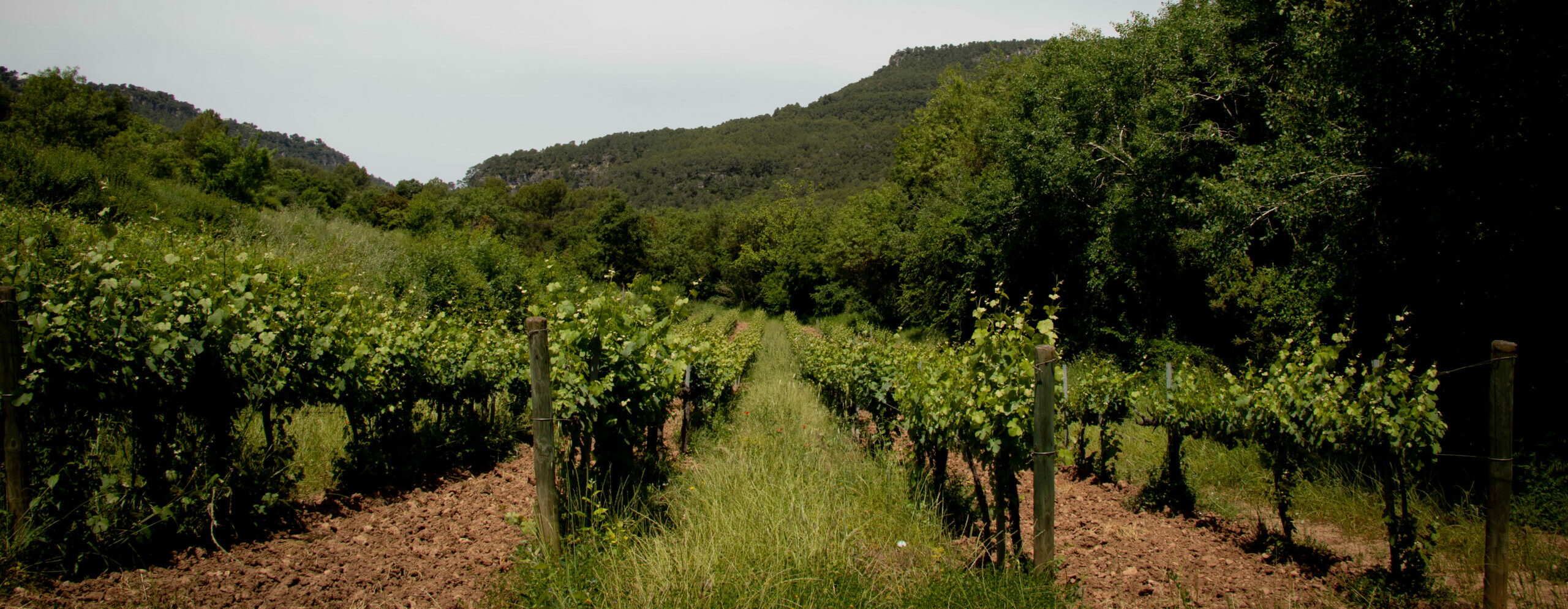At Parés Baltà, we see the vineyard as a living ecosystem — one that must be listened to, understood and cared for. Our approach, rooted in organic and biodynamic farming, aims to regenerate the soil, enhance biodiversity and produce wines that faithfully express their origin. Within this philosophy, managing ground cover crops plays a key role.
What is a cover crop and why does it matter?
A cover crop refers to the plants growing between vineyard rows. These can either be sown (such as legumes or grasses) or grow spontaneously, adapting naturally to the soil and climate conditions.
In organic and biodynamic viticulture, cover crops are essential. They protect the soil, boost underground life and help us cope with the impacts of climate change. But like all living elements, they must be managed carefully and knowledgeably.
Learning from experience
When we started implementing biodynamic practices around 2013, we initially worked with sown cover crops, especially legumes, for their ability to fix atmospheric nitrogen. However, we soon learned a crucial lesson: in order for the soil to truly benefit from this nitrogen, the cover crop must be mowed at flowering before seed set. If you mow too late, the plant has already reabsorbed the nitrogen to develop its structure, and the soil gets little to none of it.
This process demands precise timing and coordination — not always feasible during busy times in the vineyard. Combined with early drought episodes, this led us to transition towards spontaneous cover crops, which are less focused on nitrogen and more on building long-term humus. These wild covers are more diverse, less dense and less demanding. They don’t require exact mowing and are less competitive with the vines — a key advantage in our increasingly dry climate.
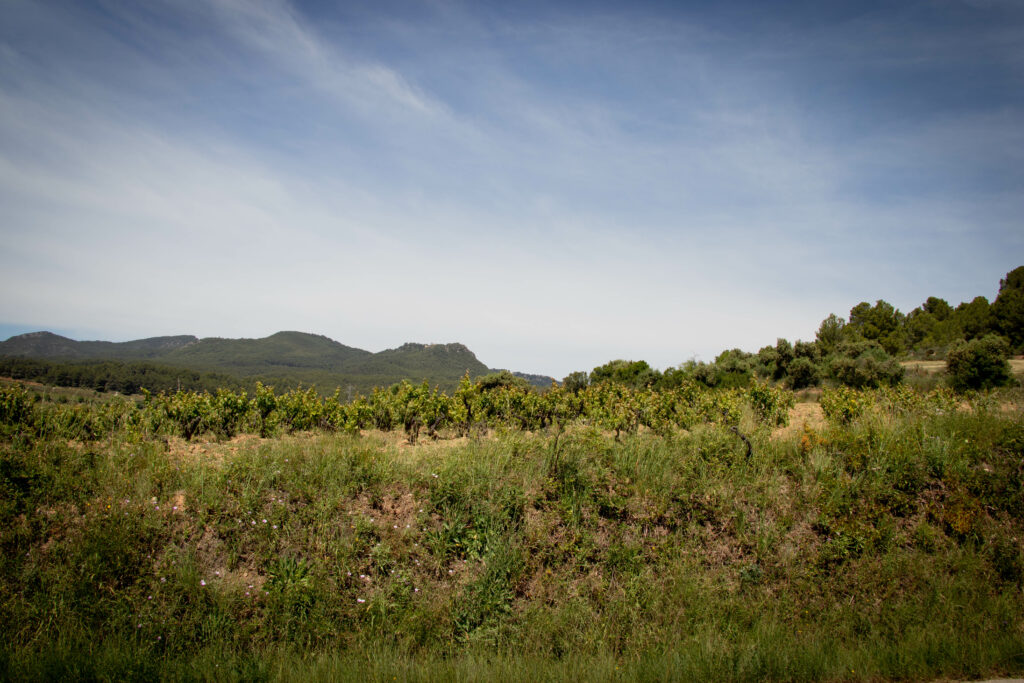
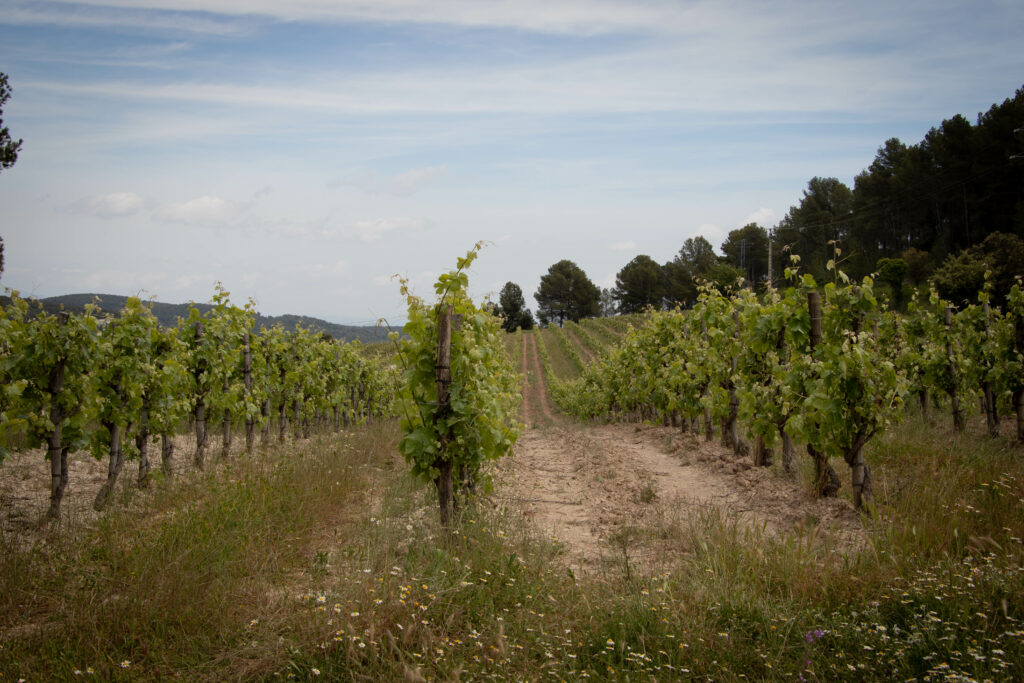
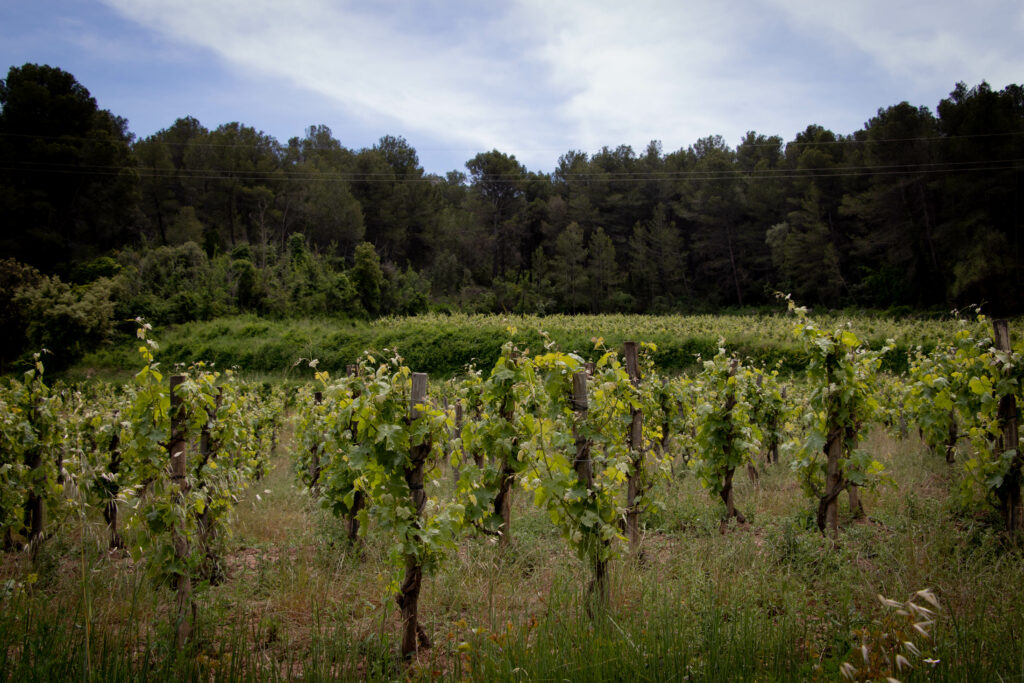
Climate challenges: adapting carefully
Between 2021 and 2023, the Penedès region experienced extreme drought. Although 2024 brought slightly better rainfall, our vines remain under considerable water stress. This has led us to reduce or eliminate ground cover in many parcels to avoid excessive competition for moisture.
In 2025, after consistent rains since October, we’ve started bringing back vegetation — but cautiously. We’re testing a “one row yes, one row no” approach. This doesn’t apply uniformly across the estate. Instead, we are adapting based on ongoing weather patterns, canopy development and ripening behaviour.
We want to observe how each parcel responds — whether the cover crop helps retain soil moisture or still competes despite the rain. This experience will help us evaluate which vineyards benefit and which struggle, guiding our future decisions.
The benefits of spontaneous cover crops
Over time, we’ve observed the many advantages of spontaneous cover crops:
- They protect the soil from erosion and compaction.
- They improve soil structure and water retention.
- They enhance biodiversity, both microbiological and in auxiliary fauna.
- They require less human intervention and precise mowing.
- And they serve as a natural indicator of vineyard health.
Organic and Biodynmaic farming
At Parés Baltà, we’ve practiced certified organic farming since 2003 (CCPAE) and biodynamic farming since 2013 (Demeter). We do this not because it’s trendy, but because we believe it’s the only way to craft authentic organic wines and cava, regenerate the land and ensure a future for our region.
Cover crops are not just an agricultural technique — they’re a reflection of our philosophy: respect, observation and the willingness to learn. That’s how we continue to grow — row by row — with our gaze on the future and our roots deeply grounded in the Penedès.
If you want to learn more, please, come visit us. We are open from Monday to Sunday from 9 to 18. We are waiting for you. Book your visit online here.
See you soon!
